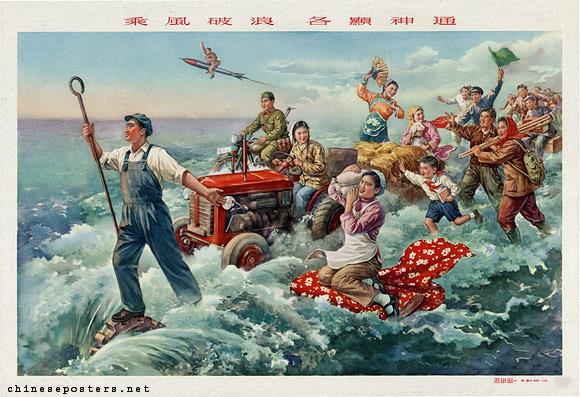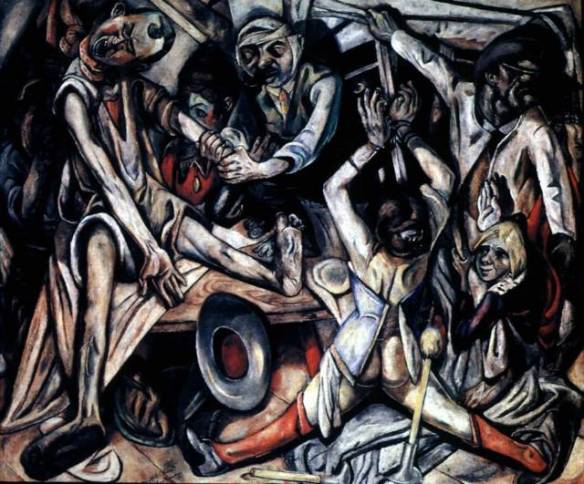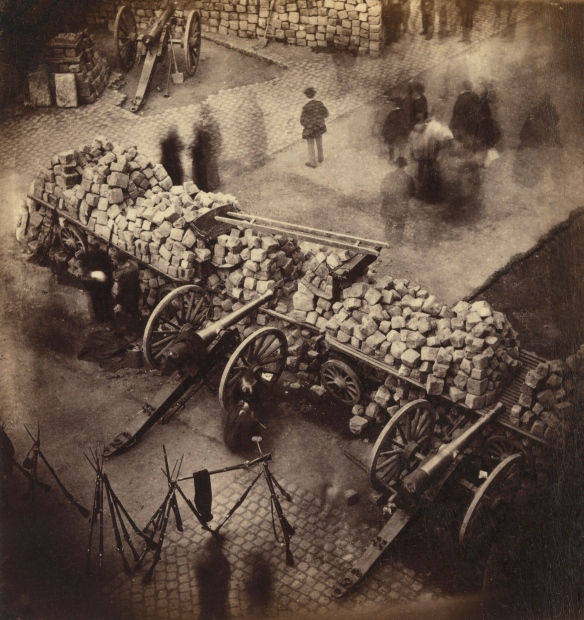
Jacobin recently put out a book, The ABCs of Socialism, which seeks to answer several questions commonly asked by people new to the idea of socialism. Thirteen authors each take on one such question, from “Will socialists take my Kenny Loggins record?” to “Why do socialists talk so much about workers?” I’ve actually been asked this second question by a friend who was curious about what socialists believe, so I was pleased to see it addressed. Each chapter in ABCs ends with a one-sentence summary of its answer.
Let me preface what follows by saying that I recognize the merit of the text. Notwithstanding the ridiculous physical appearance of the book–seriously, it’s shaped like the drink menu at TGI Friday’s–the content provides a decent introduction to some socialist political ideas. Of course, with brevity of introduction comes compromise on thoroughness. The book contains several ambiguities and insufficiencies. The most striking such problem has to do with whether “the rich deserve to keep most of their money,” which was authored by the sociologist Michael A. McCarthy.
McCarthy situates the entire discussion in the realm of tax politics. He states that
“the socialist justification for taxes is grounded in a view – not often captured in opinion polls – about how capitalist wealth is actually created. To explore it, we first need to understand what taxes are and what non-socialists think about them”
McCarthy argues that three basic things under-gird the “socialist” understanding of taxation. First, everything produced in capitalist society, the total social product which is the target for appropriative taxation by the state, is socially created in part by rules and regulations the enforcement of which is already underwritten by taxation. The most direct form of this are police and courts, which enforce private property rights.
Second, “[t]he class inequality that results from making this social product is relational”. By this, McCarthy does not simply mean that workers are exploited, but instead that capitalists accumulate wealth only by depriving workers of it, and that most of the total social product goes over to the capitalists. “The condition for this relationship is, once again, political and maintained through tax revenue”.
Third, “redistribution through taxation is a means of extending individual freedom – not curtailing it”. McCarthy might be trying to avoid using old Marxist rhetoric about exploitation; the word doesn’t crop up once. But why?
Exploitation, Marxists believe, is at the heart of capitalism. The wealth that is “socially produced” is produced by the working class. It might seem pedantic to mention this, but McCarthy combines his argument about wealth being “socially produced” with the claim that “[t]axation provides a partial remedy to that essential, structural inequality of capitalist society”.
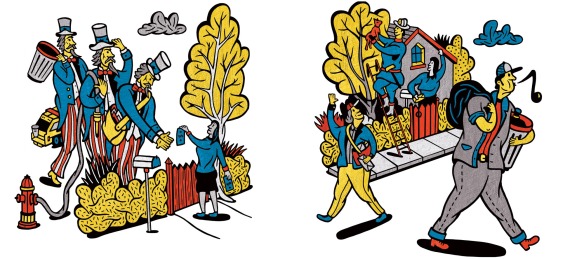
Tax policy can function in some respects as a counterweight to capitalist abuses, for capitalist corruption and subversion of democracy is exercised by the veto power of money. And it is doubtless true that tax policy can serve to extend certain forms of individual freedom: providing workers with tax-funded health-care, unemployment insurance, retirement income, food assistance and more is a means to relieve the individual worker from spending all their time at work, taking care of kids and loved ones, being sick and tired. But there are a few problems here.
Why are tax-funded “redistributive” measures consistently under attack from the right? Why can’t the left or even liberals stop these attacks? Why are tax-funded social programs like single-payer healthcare political non-starters in the U.S.? What would a socialist strategy to change tax policy and spending on social welfare look like in the U.S.?
It is important to point out that Jacobin is essentially an organ for the Democratic Socialists of America (DSA). That group’s Strategy Document for 2016 provides scant clarification of these questions. For the most part, the document does not reckon with the historical failures of Marxist movements across the 20th century, nor even the recent failures of SYRIZA, the Bolivarian movement in South America, etc. It is this reticence, and the resultant vagueness of strategy and historical naivete, that undermines the coherence of the ABC’s of Socialism. And it serves the specific purpose of evading a full commitment to Marxist politics: it allows the DSA to reject the dictatorship of the proletariat and remain open to elements of coalition with the petit bourgeoisie, with a view to taking office at all costs rather than patiently building toward taking power. The latter objective is addressed directly in Revolutionary Strategy by Mike Macnair of the Communist Party of Great Britain.
Countering the argument that the left needs to win office at all costs, Macnair contends that socialists/communists ought to pursue a strategy which has bringing the working class to power as its ultimate aim. These two strategies are incompatible.
Take taxes as an example. Changing U.S. tax-revenue policy at the federal level requires influence within and control of both the House Ways and Means Committee and the Senate Finance Committee. This raises immediately the problem of political struggle. The pattern adopted by SYRIZA, Podemos, and others, has been to exploit capitalist crises to form left-of-center coalitions to get office at any cost. This way they can potentially influence tax and spending policies and maybe fetch slightly better outcomes for the working class. But these have proven to be dead ends, because their strategy conflates getting office and forming a government in the bourgeois state with the working class seizing social power. Any reforms settled on at the level of the nation state, toward the end of national development, are largely reversible, given the international dictatorship of the capitalist class. Theirs is an approach to governance that is not based on the strategic assumption that workers must ultimately overthrow the constitutional order, but also generalize revolutionary conditions internationally. Instead, it leaves the veto power of the bourgeoisie essentially undisturbed, most often by limiting the terrain of struggle to the nation-state. Why so much of the left continues to pursue such strategies is a central question of Macnair’s book.
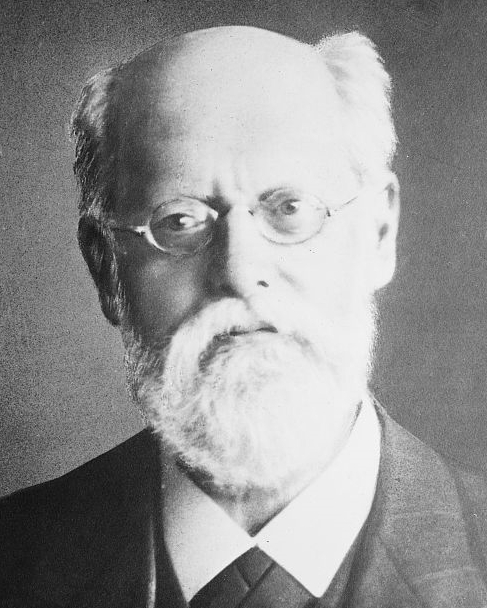
Macnair states his thesis this way:
“To summarise the argument very much in outline, in the first place I argue that there are solid grounds to maintain the fundamentals of Marx and Engels’ political strategy: of the self-organisation of the working class; for independent political action, not just in trade unions and/or cooperatives; independent both of the capitalist parties and of the capitalist states; on both national and international scales. As between the strategic lines offered in the Second International, I argue that the ‘strategy of patience’ of the Kautskyan centre was and is preferable to either the strategy of cross-class ‘left’ coalition government favoured by the right, or the ‘mass strike strategy’ favoured by the left. What was wrong with the Kautskyans, and led in the end to them being subsumed in the right, was their nationalism and their refusal to fight for an alternative to the capitalist state form.”
It is the coalition politics of the right wing of Social Democracy that more or less characterizes most socialist politics today. This political orientation does not come in for criticism in The ABC’s of Socialism or in the strategic and programmatic documents of the DSA. As he mentions above, though he is supportive of the Kautskyan strategy of patient building of workers’ political forces, Macnair rejects Kautsky’s simplistic attitude toward the capitalist state. It is this simplistic attitude toward the capitalist state that is implied in both the DSA’s strategy documents and parts of ABC’s.
Similarly, though he agrees that the left was correct to split from the Second International, he argues that splits are not an altogether useful tactic, and that they do not by themselves “purify” parties or movements. The series of splits that took place within the left after World War I, tied to the Russian Revolution, form the contours of leftist politics the world over through the rest of the 20th century. We must acknowledge and confront this.
Strategy and the Russian Revolution
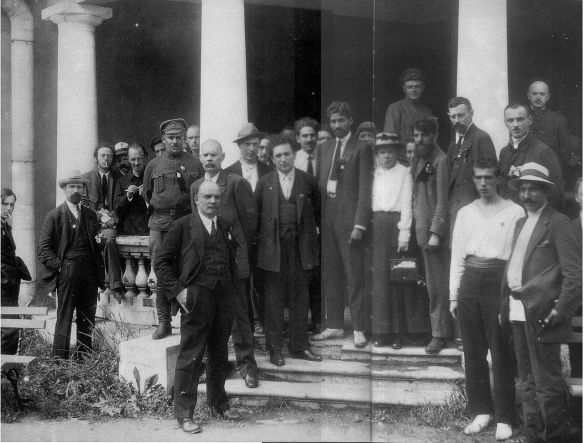
The Russian Revolution is the historical event upon which all students of socialism must cut their teeth. It is the subject of ferocious debate and acrimonious fallout.
The fundamental tragedy of the Russian Revolution was that it was a conscious gamble on the part of the Bolsheviks. In a bid on power for the working class, the Bolsheviks, in alliance with some Mensheviks, Left-SRs and Anarchists, overthrew the provisional government of Russia in late 1917 and worked to establish social rule through Soviets (neighborhood and city councils, run by workers). The tragedy arose out of the fact that the working class made up a very small portion of the population. Most of Russia was populated by peasants – poor farmers, often with restricted access to land as private property. The decades before the revolution saw some peasants gradually gaining more access to land, and more rights, but most remained poor and indentured. They were functionally, structurally independent economic units, however, inasmuch as they provided their own necessities through control of their labor process. They grew their food for their own consumption and for exchange (mostly grains). They did purchase some consumer goods, but did not use much modern technology. Some of their productive methods were arguably centuries old. Their central aim, as a class, was to acquire as much land as possible in order to support themselves and their families. They wanted private property.
The crux of the problem is this: the Bolsheviks could not rule in the name of the peasants and the workers at the same time. The same economic policies which benefited the workers hurt the peasants. Cheap food for workers requires paying low prices for grain. Low prices to for grain means low income for peasants. Additionally, technological development in agricultural production required a lot of capital investment in machinery. It also necessitated breaking up the land holdings of small agricultural proprietors and reducing them to the status of propertyless ‘agricultural workers’). By the end of the Russian Civil War (in which Western-supported aristocratic and reactionary forces fought to regain power) the Bolsheviks found themselves in a bind.
Their gamble had been that the Revolution of 1917 would inspire revolution in the rest of Europe, and that with technologically advanced countries like Germany on board, developing agriculture and industry in Russia would be a lot less difficult. Instead, Russia came out of the civil war facing international isolation, famine, a recalcitrant peasantry, and hyperinflation. Already in 1918, in preparation for the Civil War, they destroyed many of the democratic elements within their own party organization. That process continued through the war and after.
Put simply, the Bolshevik party had to subordinate socialist revolution to economic development. Bolshevik power was a based on an unholy alliance between the working class and petty proprietors in the form of peasants. While the Bolsheviks had argued that a working class party requires democracy, toleration of factions, mass membership, and debate, the party had to commit itself to balancing the class interests of workers against peasants; city against countryside. This straddling of conflicting class interests spurred the development of an alien bureaucracy ‘above society’ seeking to regulate production in accordance with some development plan.Stalin’s simplistic but murderous solution, unparalleled in human history, would eventually win out.
And it is in this period where most of the left, aware or not, locates the origin of their politics. It might seem enough to reject the model of the Russian Revolution altogether, as MacNair appears to do:
“We can no longer treat the strategy of Bolshevism, as it was laid out in the documents of the early Comintern, as presumptively true; nor can we treat the several arguments made against the Bolsheviks’ course of action by Kautsky, Martov, and Luxemburg (among others) as presumptively false. I stress presumptively.”
Macnair doesn’t reject the necessity of smashing the bourgeois state however. Macnair is concerned with the institutional forms of working class rule and how they contrast with those requisite for bourgeois rule.
The war years vastly transformed the Bolshevik party, which was then subsequently held up as the model for revolutionaries the world over by the Comintern as the alternate form of authority in a revolutionary upheaval. Macnair argues that there were three core elements to the strategy proposed by the Comintern: Revolutionary defeatism, the 1914 split as a tactic to purify the workers movement, and the Bonapartist ‘Vanguard Party’ as the alternative authority to the capitalist state.
Defeatism and Splits
First, Macnair argues that defeatism was the correct line in WWI. But defeatism is not a purity test, or simply a moral imperative. Specifically, Lenin argued for defeatism in the context of conflict of imperialist nations, not for defeatism within, say, the anti-colonial movement. Most importantly Lenin pushed to adopt the specific strategy of agitation and organization in the military for trade union and political rights, as a means to disrupt the ordinary function of military discipline and instill practical resistance.
Nor does Lenin defend a defencist policy vis-a-vis colonies involved in anti-colonial struggle in a blanket sense. What is stressed here is practical unity between the working class in each country, not ‘critical support’ for bourgeois governments (or in the case of some leftists, political Islam in reprehensible but anti-colonial forms, or anti-Western ‘secular’ dictatorships). We ought to work against our own governments’ abilities to carry out imperialist wars; we should instead promote international working class unity, on both sides.
Macnair rejects the split as a ‘purifying’ gesture. Lenin and others argue that the 1914 split was necessary because:
A) the rightists and center were scabs.
B) the rightists were sections of capitalists, or were allied with them, and were issuing ultimatums to the working class, attempting to exercise a veto power over them by using the instruments of the capitalist media and state.
C) Some workers (‘aristocracy of labor’) had interests in common with imperialist capitalists because they were receiving a bigger slice of the pie, in the form of higher wages.
D) The split is a strategic means to purify the movement, and set it on a revolutionary instead of reformist course. It creates a ‘party of a new type’.
MacNair agrees with points A and B. However he is critical of the ‘imperialist aristocracy of labor’. Colonial countries have labor bureaucracies and opportunists as much as imperialist countries. Not only this, but imperialism is not simply one hegemon versus the world, but a hierarchy of states with different particular advantages over each other. Finally, skilled workers have served as both revolutionary and reactionary in any given epoch. Macnair writes:
“Working class support for one’s own capitalist nation-state is produced by dynamics inherent in the capitalist nation-state system and world market and there is no grouping within the working class which is presumptively free of it.”
Ironically, splitting contributes to more challenges for the working class, which requires wide agreement and action to achieve it’s ends. The split between communists and social democrats cannot be healed. Yet united political action of the working class is objectively necessary to win even modest reforms in capitalism. Thus, the split, rather than automatically purifying the workers’ movement, immediately poses the problem of unity.
Working class unity in a party or trade union is a conscious unity not an ‘organic unity’ like family or clan. It is a unity in diversity, an agreement ‘to unite for partial common ends, while recognizing diverse individual opinions and wills.’ Workers organizations require full-timers, because capitalists do not give workers enough time off to manage large organizations. The question then, is how to run the party organization.
Party of a New Type and United Front
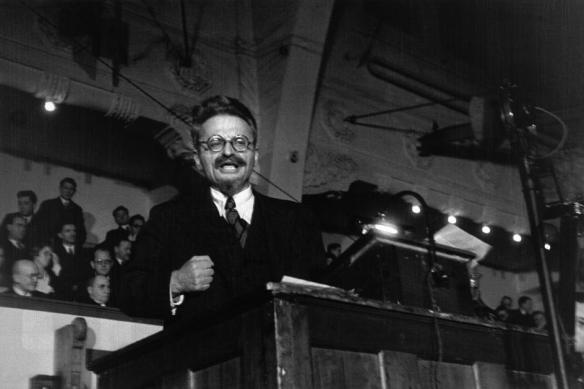
The “party of the new type”, mythologizes the Bolshevik party and projects it’s recent (1918-1921) militarization and Bonapartist centralization back onto the past:
“On the other hand, it (Comintern policy) is also a theorisation of what the Bolsheviks had done to their party in 1918-21, both in militarising it and in setting it up as a minority dictatorship, a state authority against the working class. In this aspect the “new party concept” or, as it came to be called after Lenin’s death, “Leninism”, was a theory of the dictatorship of the bureaucracy, and one which was to animate endless bureaucratic sects.”
This “party of a new type” emphasized three organizational points, which undermined the ability of the membership to subordinate the bureaucracy. It was not a mass party, but a “vanguard party”, it was an activist party, and it was to be strictly centralized, banning factions, reducing greatly the autonomy of locals by giving the central committee of the party veto power over local decisions.
“Democratic Centralism” as this set of organizational policies came to be known, effectively eliminated any internal democracy within the organization. Further, it contributed to an obsession over theoretical over programmatic unity and the general repressive nature of left politics that has become a stereotype.
MacNair outlines two basic ways in which the ‘parties of a new type’ which came to dominate the left, approached the question of ‘united action’:
1. Refusal of unity for limited common interests on the basis of insufficient agreement on other questions
2. United action or diplomacy by means of over-generalized agreement or self-censorship
‘Unity’ often equals shutting up about those with which they unite. The basis for unity then is a suppression of criticism. Support is not ‘critical’ at all, and the movement is not able to choose between clear and diverging opinions.
Alternatively, there is an obsession with ‘militant action, moderate demands’ as a means to outperform the reformists and thus inspire/recruit workers to whichever left sect. ‘The workers break with the reformists in action not ideas!’ say these leftists, as they refuse to form formal political organizations. These ideas are visible in morphed form in the neo-Trotskyist syndicalism of Marty Glaberman and Stan Weir, and have found some purchase in the contemporary IWW.
The problem, argues MacNair, is that once workers ‘become politicized’, they look for a party:
“The underlying problem is that it is a variant of the sub-Bakuninist mass strike strategy discussed in chapter two. Once the masses, or even quite small layers of newly radicalising militants, actually begin to enter the political stage, they demand of the left not ‘good fighters’ on the particular struggle, but an alternative political authority. At once, this poses the question of a party in (at least) the Kautskyan sense. This requires addressing the full range of questions affecting the society as a whole.”
Fundamentally, the united front policy of the Comintern was meant to address the unity of the class around particular demands. If the 1914 split between coalitionist right and communists advocating for the international independence of the working class will not be healed, then the united front is necessary. Not in the form of ‘shutting up’ and toeing the line, and not, either, of dissolving our activity into being the militant wing only of the coalitionist right, but by developing our own political organization, and uniting around specific demands and fights, where necessary, with workers in coalitionist organizations. Ultimately, we will have to attempt to unite in a communist party, but not on the basis of confused united front strategies.
Both variants often find small leftist sects, piloting front groups into “coalitions to end x”. This is the ultimate “united front” strategy of the left today, and it’s logical conclusion is the SYRIZA government in Greece; a coalition to end the right-hand-of-capital’s monopoly on power for a few years.
Role of the Party in Revolution
Finally, on the point of social authority at the moment of revolution, Macnair puts forward a theory of the “party-state”. What is meant here is a rejection of the left communist and anarchist “all power to the soviets” on the one hand, and of Kautskyan seizure of the bourgeois state on the other.
Drawing on the history of various revolutions since the 17th century, MacNair points out that revolutionary class rule is exercised through the vehicle of parties, which exclude the parties of other classes from power at the point of seizure of power. Think of the domination of the Republicans of the legislature during the Civil War. The southern democrats were ‘excluded’ on the basis of the federal government refusing to expand slavery, the bedrock of the class rule of the Southern aristocrat, the marginalization of the Democratic party, and of course the prosecution of a war which entailed the wholesale destruction of their property. The Democrats’ re-integration into political life was notably contingent on oaths of loyalty.
But doesn’t party-rule imply totalitarianism, violence, genocide and all the rest of the bad stuff we hear about in high school history class? No, argues MacNair.
Put simply, party-rule does not equal bureaucratic dictatorship. That is derived from the the militarization of the Bolshevik party upon need for discipline in the civil war, the ban on factions to suppress splits in the party, and ultimately the desperate need to balance the class forces of the peasantry and the working class. Instead of the ‘democratic dictatorship of the proletariat and the peasantry’ the Bolsheviks had organized a bureaucratic, militaristic political rule necessary for economic development.
On this basis, Macnair argues for a core minimum program. Taking cue from Marx and Engels’ critique of the Gotha Program, their influence on the program of the Parti Ouvrier, and the SPD’s Erfurt Program, the minimum program describes the basis upon which workers would take power (not merely take office). In his own words:
“This understanding enables us to formulate a core political minimum platform for the participation of communists in a government. The key is to replace the illusory idea of ‘All power to the soviets’ and the empty one of ‘All power to the Communist Party’ (Comintern) with the original Marxist idea of the undiluted democratic republic, or ‘extreme democracy’, as the form of the dictatorship of the proletariat.”
The capitalist class would be excluded from rule, whether voluntarily or forcefully, by the ascendence of “undiluted democratic republicanism”. Here the ‘extreme democrats’, the workers, will necessarily exclude capitalists through the abrogation of their “rights” in the form of the rule of law, unaccountable judicial review, the executive, and the upper houses of the legislatures and so on.
What is in this minimum program? Some key points:
– Universal military training and service, with democratic and trade union rights in the military, including election and recallability of officers.
– Election and recallability of all public officials, who are to be put on a worker’s wage.
– Abolition of secrecy laws and copyright.
– Abolition of judicial review of the decisions of elected bodies.
– Abolition of constitutional guarantees of the rights of private property and freedom of trade.
Communists fight for this minimum program day-to-day in order to increase the functional organizing ability of the proletariat and expose the corruption of the capitalist political order. Some have accused Macnair of using the term ‘republican-democracy’ far too idiosyncratically. Let’s see:
“The only form through which the working class can take political power and lay collective hands on the means of production is the democratic republic. This does not mean ‘rule of law’ parliamentary constitutionalism, to which it is, in fact, opposed.”
For Macnair it means defending the democratic rights accomplished in ‘rule of law’ constitutional regimes, like freedom of speech and assembly, and extending democratic and republican rights; the right of recall applied to all public officials (republican) and the generalized principle of self-government (democracy). The task then is to fight for an opposition and not government office at all costs. This opposition must ‘commit itself unambiguously to self-emancipation of the working class through extreme democracy…’ and organize for majority support of both minimum and maximum program. There are no ‘insurrectionary’ or coalitionist short cuts. The minimum program is the basis for bringing the working class into power, and beginning to build communism (the maximum program).
In the final chapters Macnair touches on the necessity of internationalism as a starting point and as the true horizon of working class rule, both of which are important but I will hold off on here.
Strategy Today
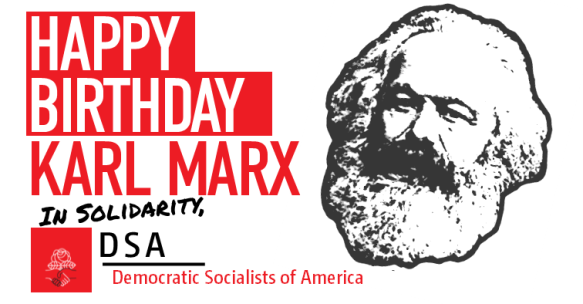
In sum, Macanair’s is a strategy of patience where the working class develops mass, democratic organizations in the process of struggle against capital, and in opposition to the constitutional order. These alternative institutions demonstrate the ability of the working class to govern society, as well as serve as the means to fight for legal-constitutional reforms which increase the scope and ability of the working class to organize and eventually seize power. These reforms reflect the form necessary for the dictatorship of the proletariat.
When this occurs, it will be through the vehicle of a mass, democratic-republican party of workers which tolerates factions within itself, delimited only by the exclusion of capitalist forces.
In contrast, DSA’s Strategic Document is less clear:
“Rather, our strategy… …. consists of fighting on a number of interconnected fronts in the short-term, leveraging gains made in these struggles into more structural, offensively-oriented changes in the medium-term and ultimately employing the strength of a mass socialist party or coalition of leftist and progressive parties to win political power and begin the process of socialist transformation.”
The DSA boast of being the largest socialist organization in the United States. They have given support to Sanders’ candidacy in the Democratic Primaries as a means for generating support for ‘socialism’. Cornel West, a notable member involved in this effort, has been tapped by the Democratic party to help draft the near useless party platform, which appears to be Sanders’ main political activity after losing the nomination.
They also aim in the ‘medium to long term’ to run progressive candidates in the Democratic Party, and eventually form a socialist ‘coalition’. But this is vague. An electoral strategy in the U.S., as in any country, needs to be subordinated to the aim of bringing the working class to power.
Perhaps, as they indicate in their document, they feel it is too soon to lay out a true program. But they give hints toward what taking power would look like:
“Success across this spectrum of (short-term) struggles should lead to a period when we can talk seriously about the transition to democratic socialism through reforms that fundamentally undermine the power of the capitalist system (often referred to as “non-reformist reforms”), such as the nationalization of strategic industries (banking, auto, etc.) and the creation of worker-controlled investment funds (created by taxing corporate profits) that will buy out capitalist stakes in firms and set up worker-owned and -operated firms on a large scale.”
In their document Towards Freedom this coalition politics is explicit. Socialists must unite with petit-bourgeois professionals in demands for more “democratic consumption.” Side by side with this strategic aim, is the argument that Socialists, thanks to election rules in the U.S., are forced to work within the left of the Democratic Party, or remain irrelevant.
What are we to make of this? Combined with the expressed need to form coalitions above, the emphasis on putting tax policy in the hands of socialists as well as peaceful nationalisation schemes, we get a picture of the kind of politics that Macnair argues against, the coalitional politics of SYRIZA and others. Here, the task is to figure out how to get into office, and institute reforms, whether palliatives, or “non-reformist reforms” like nationalization.
But, nationalization is a reformist-reform. That is, it is transitory in the context of global capitalism. Look at Venezuela right now, or Greece’s struggles to deal with its international financial yoke. Coalition parties, even if socialist coalitions, coming to power in one country, cannot stop what Macnair calls the ‘ratchet to the right.’ Whatever the policies of Chavez, or Rouseff, Venezuela and Brazil now find themselves in the throes of the typical struggles of the international capitalist class to protect investment and profitability. Left-wing administrations are often followed by rightist ones which carry their politics even further away from the left.
Nationalization of industry is essential to the minimum program as outlined by Macnair, and in the old Erfurt Program and Communist Manifesto. But it is only one bullet point on a list of crucial changes that bring the working class into power. That is, it is one thing that helps free the working class from the drudgery of work, in order to pursue the governing of society.
DSA’s thinking here and in the ABC’s gets it backwards; we must organize a party, take office, and change tax policy, in order to bring the working class to power thereby avoiding revolutionary upheaval, and sidestepping completely the dictatorship of the proletariat. Contra DSA, Macnair’s proposals put the working class in the driver’s seat, and begin to deal with the particulars of the institutional forms of working class rule requisite for seizing power. This “dictatorship of the proletariat” accomplished, tax policy would be largely superceded.
What gets policy to change is fear on the part of the capitalist class from the organized power of the working class, not teaming up with factions of business or the petit-bourgeoisie, appealing to their decency, respect for international law, or reliance on oil or other key exports.
While The ABC’s serves as a useful introduction to socialist ideas, it is limited by Jacobin and the DSA’s unclear political strategy. The text would benefit from answers being linked to a general political program, beyond the coalition politics that currently plague the left. This is reflected in the line in DSA’s strategy document, as well as in the ABC’s. Hate or love Macnair, he sets his focus on the core problems which confronted the workers movement in the 20th century. His argument that the left has to set its organizing horizon beyond the nation-state, and its political strategy beyond office, and root it in the aim of bringing the working class to power is convincing. Revolutionary Strategy certainly merits serious engagement from U.S. communists, socialists, and anarchists.
Texts Cited:
Revolutionary Strategy by Mike Macnair
ABC’s of Socialism by Jacobin
Resistance Rising: Socialist Strategy in the Age of Political Revolution
Toward Freedom: Democratic Socialist Theory and Practice (This was authored in part by Jason Schulman, who’s also written a review of Macnair that a comrade pointed out to me shortly before publication: Current Relevancy of an Old Debate, though this doesn’t appear to have had a significant influence on the DSA’s political strategy)
A Brief History of the American Left


